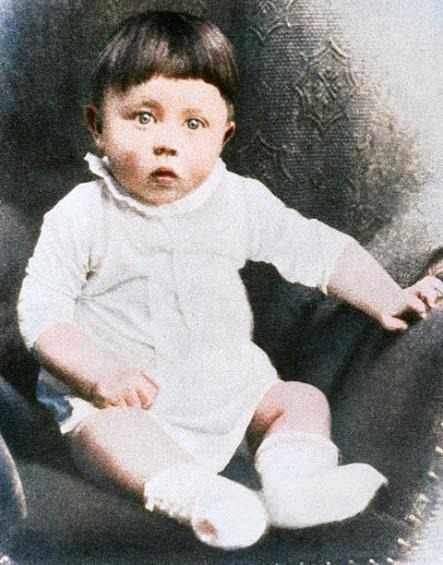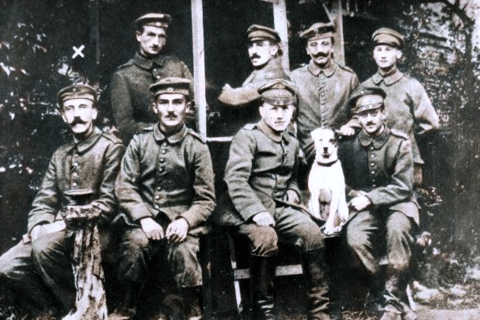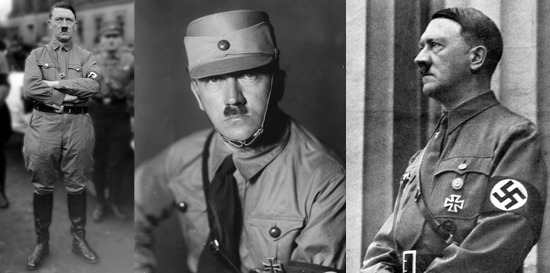Adolf Hitler's Formative Years: How Early Life Struggles Fueled His Infamous Ambitions
Uncover the pivotal events and hardships in Adolf Hitler's early life that profoundly shaped his worldview and ultimately led to his devastating ambitions. Explore the psychological and societal factors that transformed a struggling youth into a figure of infamy.


How Adolf Hitler's Early Life Shaped His Ambitions
Adolf Hitler remains one of history's most controversial figures, remembered for his rise to power and the catastrophic impact of his rule. But before he became the dictator who led Germany into World War II, Hitler's early life was filled with struggles, disappointments, and formative experiences that would shape his ambitions and worldview. Understanding his early years provides a glimpse into the factors that molded his character and ideology.
The Early Years: A Modest Beginning
Adolf Hitler became born on April 20, 1889, in Braunau am motel, a small Austrian town near the German border.. He was the fourth of six children born to Alois and Klara Hitler. Of the six, only Adolf and his younger sister Paula survived into adulthood. The deaths of his siblings reportedly left a profound mark on him, contributing to his introspective and melancholic nature. Austrian town Braunau am Inn
Hitler’s father, Alois, was a strict and authoritarian figure who worked as a customs official. Their relationship was strained, with frequent clashes over Adolf’s lack of discipline and reluctance to follow his father’s career path. In contrast, Klara, his mother, was deeply devoted to her son, fostering a close bond that provided some emotional stability in his tumultuous childhood.
Struggles in School: A Clash of Ambitions
As a student, Hitler showed little interest in academics, often performing poorly in school. His grades deteriorated during his teenage years, reflecting his lack of discipline and focus. Despite his struggles, young Adolf displayed a talent for art, particularly in drawing and painting. He dreamed of becoming an artist, a vision his father vehemently opposed, insisting instead on a career in the civil service.
This conflict over his future fueled Adolf’s rebelliousness and desire for independence. After his father’s death in 1903, Hitler’s performance in school declined further, leading him to drop out at age 16 without completing his studies.
The Vienna Years: Dreams and Disillusionment
In 1907, Hitler moved to Vienna with the hope of being admitted to the prestigious Academy of Fine Arts. He was rejected twice, with the academy citing his lack of aptitude for painting. These rejections were devastating for Hitler, who had envisioned a future as a celebrated artist. Instead, he found himself struggling to make ends meet, living in poverty and working odd jobs while staying in men’s hostels.
During his time in Vienna, Hitler’s worldview began to take shape. Exposed to the city’s rampant anti-Semitism, economic disparities, and nationalist ideologies, he developed the seeds of the beliefs that would later define his political platform. He also spent hours reading books on history, politics, and philosophy, which deepened his understanding of the power of propaganda and mass movements.
World War I: The Turning Point
Hitler’s lifestyles took a dramatic flip with the outbreak of world war I in 1914. Eager to serve, he enlisted in the German army, despite his Austrian citizenship. He served as a messenger on the Western Front, a role that exposed him to the horrors of trench warfare. Hitler’s bravery earned him the Iron Cross, First and Second Class, honors he wore with immense pride.
The war provided Hitler with a sense of purpose and camaraderie he had lacked in civilian life. However, Germany’s defeat in 1918 was a crushing blow, leaving him disillusioned and resentful. Like many Germans, Hitler viewed the Treaty of Versailles as a humiliation, fueling his determination to restore Germany’s power and prestige.
Shaping His Ambitions: Key Influences
Several factors in Hitler’s early life contributed to his ambitions and eventual rise to power:
Rejection and Resilience: The repeated failures he experienced—from his struggles in school to his rejection by the art academy—instilled in him a determination to prove himself.
Exposure to Nationalism: Hitler’s time in Vienna immersed him in nationalist and anti-Semitic ideologies, which became central to his political platform.
The Impact of War: World War I gave Hitler a sense of identity and purpose, while Germany’s defeat fueled his desire for revenge and resurgence.
Charisma and Oratory Skills: Even in his youth, Hitler displayed a flair for public speaking and persuasion, talents that he would later hone to rally mass support.
From Aspiring Artist to Aspiring Leader
By the time Hitler entered politics in the early 1920s, his ambitions had shifted dramatically. The failed artist had transformed into a fervent nationalist, determined to reshape Germany’s destiny. He joined the German Workers’ Party (later renamed the National Socialist German Workers’ Party, or Nazi Party) and quickly rose through its ranks, using his oratory skills and propaganda tactics to gain followers.
Lessons from Hitler’s Early Life
While Adolf Hitler’s legacy is one of destruction and tyranny, his early life offers several cautionary lessons:
The Power of Adversity: Hitler’s early failures fueled his drive, highlighting how adversity can shape ambition—for better or worse.
The Dangers of Extremism: His exposure to toxic ideologies underscores the importance of critical thinking and resisting hateful narratives.
The Influence of Leadership: Hitler’s charisma and determination reveal the power of leadership, but also the responsibility that comes with wielding influence.
Conclusion
Adolf Hitler’s early life was marked by struggles, disappointments, and formative experiences that shaped his ambitions and ideology. From a young boy in rural Austria to a soldier embittered by defeat, each chapter of his early years contributed to the man who would go on to change the course of history—for better or worse. While his rise to power serves as a cautionary tale, it also highlights the profound impact of one’s upbringing, choices, and environment on their destiny.








